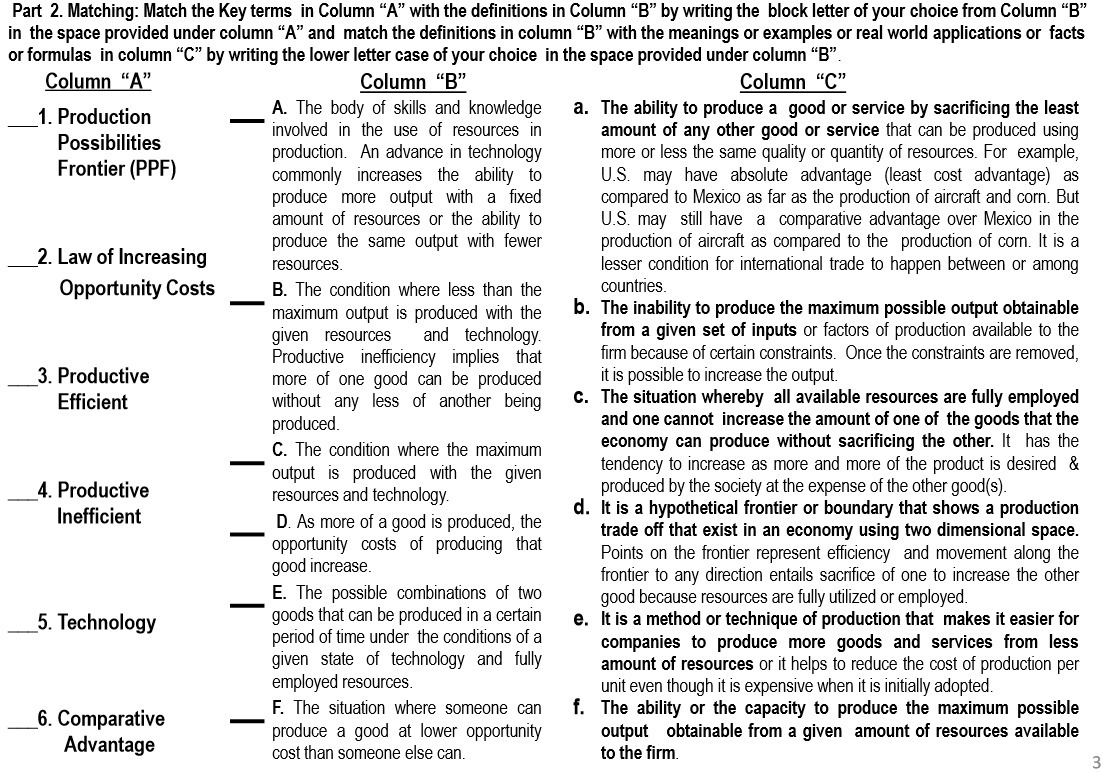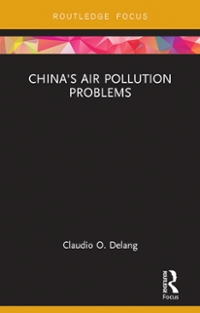Part 2. Matching: Match the Key terms in Column \"A\" with the denitions in Column \"B\" by writing the block letter of your choice from Column \"B\" in the space provided under column \"A\" and match the definitions in column \"B\" with the meanings or examples or real world applications or facts or formulas in column \"C\" by writing the lower letter case of your choice in the space provided under column \"B\". gglllmn \"EH _1. Production Possibilities Frontier (PPF) _2. Law of Increasing Opportunity Costs #3. Productive Efficient _4. Productive Inefficient _5. Technology ___6. Comparative Advantage Column \"B\" A. The body of skills and knowledge involved in the use of resources in production. An advance in technology commonly increases the ability to produce more output with a xed amount of resources or the ability to produce the same output with fewer resources. B. The condition where less than the maximum output is produced with the given resources and technology. Productive inefciency implies that more of one good can be produced without any less of another being produced. C. The condition where the maximum output is produced with the given resources and technology. D. As more of a good is produced, the opportunity costs of producing that good increase. E. The possible combinations of two goods that can be produced in a certain period of time under the conditions of a given state of technology and fully employed resources. F. The situation where someone can produce a good at lower opportunity cost than someone else can. Column \"C\" . The ability to produce a good or service by sacricing the least amount of any other good or service that can be produced using more or less the same quality or quantity of resources. For example, US. may have absolute advantage (least cost advantage) as compared to Mexico as far as the production of aircraft and corn. But US. may still have a comparative advantage over Mexico in the production of aircraft as compared to the production of corn. It is a lesser condition for international trade to happen between or among countries. . The inability to produce the maximum possible output obtainable from a given set of inputs or factors of production available to the rm because of certain constraints. Once the constraints are removed, it is possible to increase the output. . The situation whereby all available resources are fully employed and one cannot increase the amount of one of the goods that the economy can produce without sacricing the other. It has the tendency to increase as more and more of the product is desired & produced by the society at the expense of the other good(s). . It is a hypothetical frontier or boundary that shows a production trade off that exist in an economy using two dimensional space. Points on the frontier represent efciency and movement along the frontier to any direction entails sacrice of one to increase the other good because resources are fully utilized or employed. . It is a method or technique of production that makes it easier for companies to produce more goods and services from less amount of resources or it helps to reduce the cost of production per unit even though it is expensive when it is initially adopted. . The ability or the capacity to produce the maximum possible output obtainable from a given amount of resources available to the rm







